Posts Tagged ‘Mandalay’ (12 found)
Govt Neglecting Student Demands, Mandalay Protestors Say
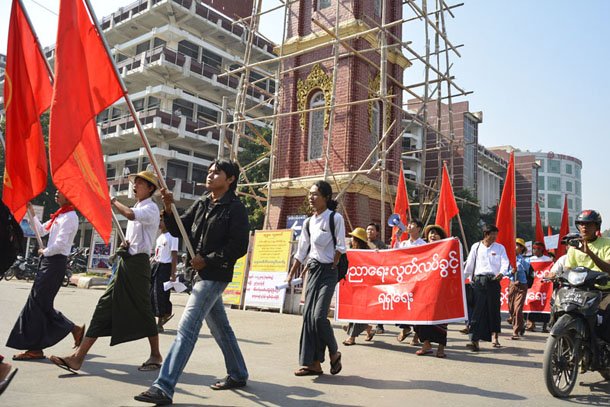 MANDALAY — Student activists here said authorities are neglecting the desires of students and teachers despite a sustained campaign of public protests against the controversial National Education Law.
MANDALAY — Student activists here said authorities are neglecting the desires of students and teachers despite a sustained campaign of public protests against the controversial National Education Law.
About 50 students from student unions of Mandalay, Sagaing, Monywa and Myingyan took to the streets of Burma’s second biggest city again on Thursday and set up camp in front of City Hall, where they held an unauthorized demonstration against the education legislation. […]
• •Burma: Religious Freedom and Related Human Rights Violations are Hindering Broader Reforms
The dramatic political developments in Burma in recent years are of historical and geopolitical significance. Bur-ma has progressed much further than most might have imagined possible only a few short years ago. Despite these achievements, Burma still has a long journey along the road to democracy and respect for human rights. Serious violations of religious freedom and human rights continue, accompanied by disturbing evidence of prejudice and intolerance, trends that will inevitably and dramatically impact the prospects for a brighter future. In short, the political reform process in Burma is at great risk of deteriorating if religious freedom and the right to equal treatment under the law are not honored and protected. […]
• • •Thousands in Mandalay Rally for Faith Laws
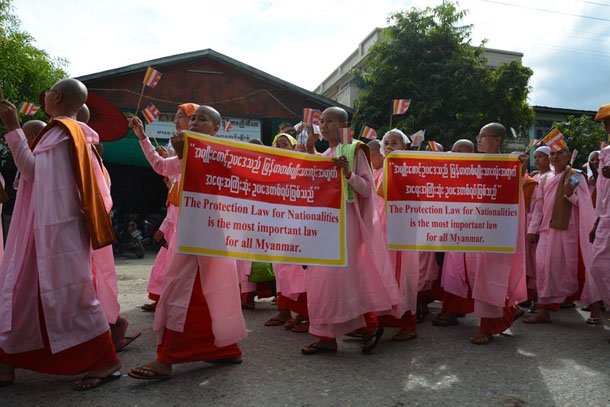 MANDALAY — Thousands of Buddhist monks, nuns and laypeople marched through downtown Mandalay on Thursday afternoon to demand that the government take action on a set of highly controversial and currently stagnant interfaith bills.
MANDALAY — Thousands of Buddhist monks, nuns and laypeople marched through downtown Mandalay on Thursday afternoon to demand that the government take action on a set of highly controversial and currently stagnant interfaith bills.
Organized by the upper Burma chapter of the Association for the Protection of Race and Religion, locally referred to as the Ma Ba Tha, the rally was joined by sympathizers from several nearby townships including Sagaing, Myingyun and Mandalay’s immediate surrounds […]
• •69th Session of the UN General Assembly – Situation of human rights in Myanmar: Report of the Special Rapporteur on the situation of human rights in Myanmar
I. The mandate of the Special Rapporteur on the situation of human rights in Myanmar was established pursuant to Commission on Human Rights resolution 1992/58 and recently extended by Human Rights Council resolution 25/26. The present report is submitted pursuant to Council resolution 25/26 and General Assembly resolution 68/242.
II. Background
2. Following the completion of the term of the previous mandate holder, the current mandate holder took up her functions only in June 2014, which resulted in a shorter period than usual to conduct a country visit and review the information gathered. The present report therefore sets out the Special Rapporteur’s preliminary observations, to be supplemented by her oral statement to the General Assembly […]
• • •Burma: USCIRF Examines Religious Freedom Violations During Fact-finding Trip to Burma
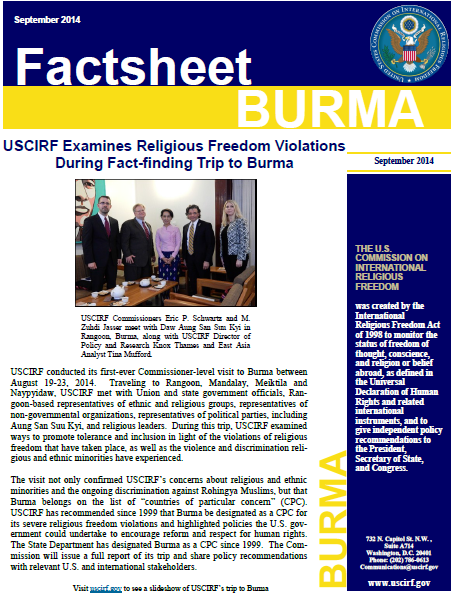 USCIRF conducted its first-ever Commissioner-level visit to Burma between August 19-23, 2014. Traveling to Rangoon, Mandalay, Meiktila and Naypyidaw, USCIRF met with Union and state government officials, Ran-goon-based representatives of ethnic and religious groups, representatives of non-governmental organizations, representatives of political parties, including Aung San Suu Kyi, and religious leaders. During this trip, USCIRF examined ways to promote tolerance and inclusion in light of the violations of religious freedom that have taken place, as well as the violence and discrimination reli-gious and ethnic minorities have experienced.
USCIRF conducted its first-ever Commissioner-level visit to Burma between August 19-23, 2014. Traveling to Rangoon, Mandalay, Meiktila and Naypyidaw, USCIRF met with Union and state government officials, Ran-goon-based representatives of ethnic and religious groups, representatives of non-governmental organizations, representatives of political parties, including Aung San Suu Kyi, and religious leaders. During this trip, USCIRF examined ways to promote tolerance and inclusion in light of the violations of religious freedom that have taken place, as well as the violence and discrimination reli-gious and ethnic minorities have experienced.
The visit not only confirmed USCIRF’s concerns about religious and ethnic minorities and the ongoing discrimination against Rohingya Muslims […]
• • •Multi-Faith Network Urges Secretary Kerry to Raise Religious Freedom Violations with Burmese Government
Members of the US-based International Religious Freedom (IRF) Roundtable, a multi-faith informal group of organizations and individuals advocating for freedom of religion or belief, have written to US Secretary of State John Kerry ahead of his visit to Burma, urging him make it a priority to discuss reported violations of freedom of religion or belief with the government […]
• • •Statement of the Special Rapporteur on the Situation of Human Rights in Myanmar
Introduction:
Good evening and thank you all for coming today. I have just concluded my first official ten- day mission as Special Rapporteur on the situation of human rights in Myanmar. The objective of my visit was to assess the human rights situation in Myanmar through a better understanding of the realities on the ground. Accordingly, I sought to engage constructively with a broad spectrum of stakeholders, including Government officials, political, religious and community leaders, civil society representatives, as well as victims of human rights violations and members of the international community. I was pleased to have had a frank and open exchange of views on a range of matters related to my mandate. And I am grateful that many were so forthcoming in their views on sensitive issues […]
• • •Burma Must Find a Path to a More Tolerant Society
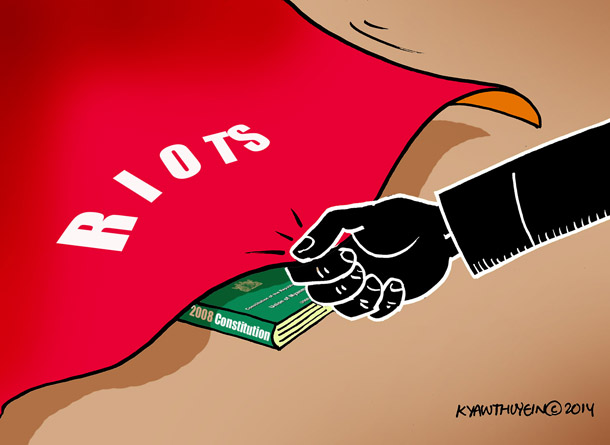 The streets of Mandalay, which just recently drew over 20,000 people in support of National League for Democracy and 88 Generation Peace and Open Society’s joint campaign to amend Section 436 of the Constitution in support of democratic reform, remain deserted this last week as many business owners closed their shutters in fear, following serious unrest in the city. In the second largest city in Burma, violent mobs took over the streets, leaving two people dead and dozens injured. Some stated that over “70 police were here but did nothing,” as Buddhist mobs torched a school in a Muslim area. Ironically the international community has mostly stayed silent in the wake of the recent events when their actions are needed to protect the people of Burma, especially the most vulnerable communities, more than ever.
The streets of Mandalay, which just recently drew over 20,000 people in support of National League for Democracy and 88 Generation Peace and Open Society’s joint campaign to amend Section 436 of the Constitution in support of democratic reform, remain deserted this last week as many business owners closed their shutters in fear, following serious unrest in the city. In the second largest city in Burma, violent mobs took over the streets, leaving two people dead and dozens injured. Some stated that over “70 police were here but did nothing,” as Buddhist mobs torched a school in a Muslim area. Ironically the international community has mostly stayed silent in the wake of the recent events when their actions are needed to protect the people of Burma, especially the most vulnerable communities, more than ever.
The series of events began on 1 July, just hours after the extremist Buddhist monk, and leader of the anti-Muslim 969 movement, Wirathu, picked up a questionable post from the social media site Facebook that highlighted an alleged rape of a Buddhist woman committed by two Muslim brothers. According to David Mathieson, a senior researcher for Human Rights Watch, Wirathu, who is based in Mandalay, appeared to have played “a pivotal role” in inciting the unrest, fanning tensions by spreading accusations with religious inferences, while calling for action against the two Muslim brothers who own a teashop in the same area where his monastery is located […]
• • •Statement on Anti Muslims Violence in Mandalay
Burmese Muslims Association strongly condemns anti-Muslim violence that has erupted in recent days in Mandalay, the second largest city in Burma. The violence that has occurred is not simply a result of sectarian conflicts. It is without doubt a well-planned operation, carried out by a group of well-trained thugs–which has tacit impunity and free license from the Thein Sein’s government–not only to cause a great deal of physical harm and injury against Muslims, a helpless minority group in Burma, but also to instil immense psychological terror and mental anguish, during the Muslim holy month of Ramadan […]
• • •
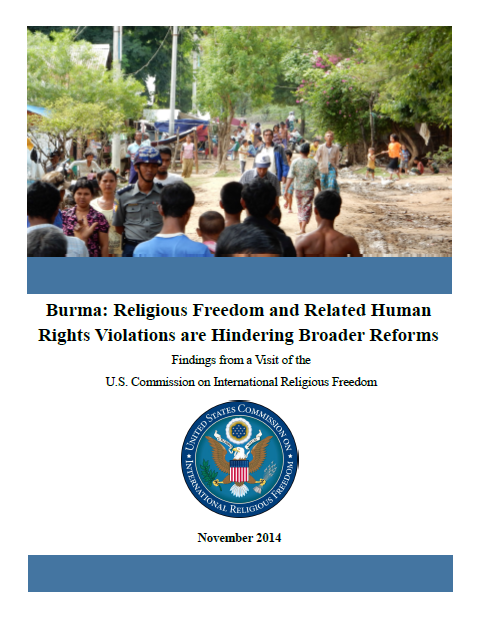
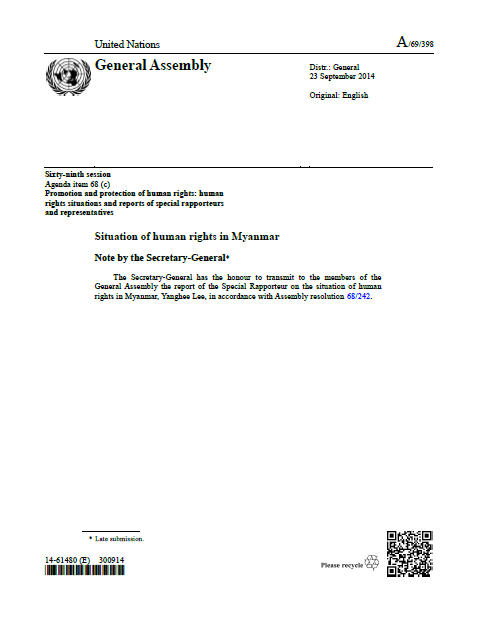
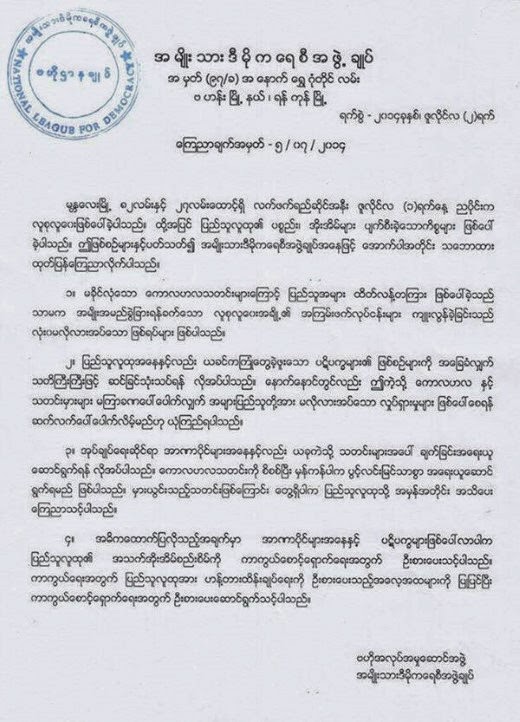








 All posts
All posts